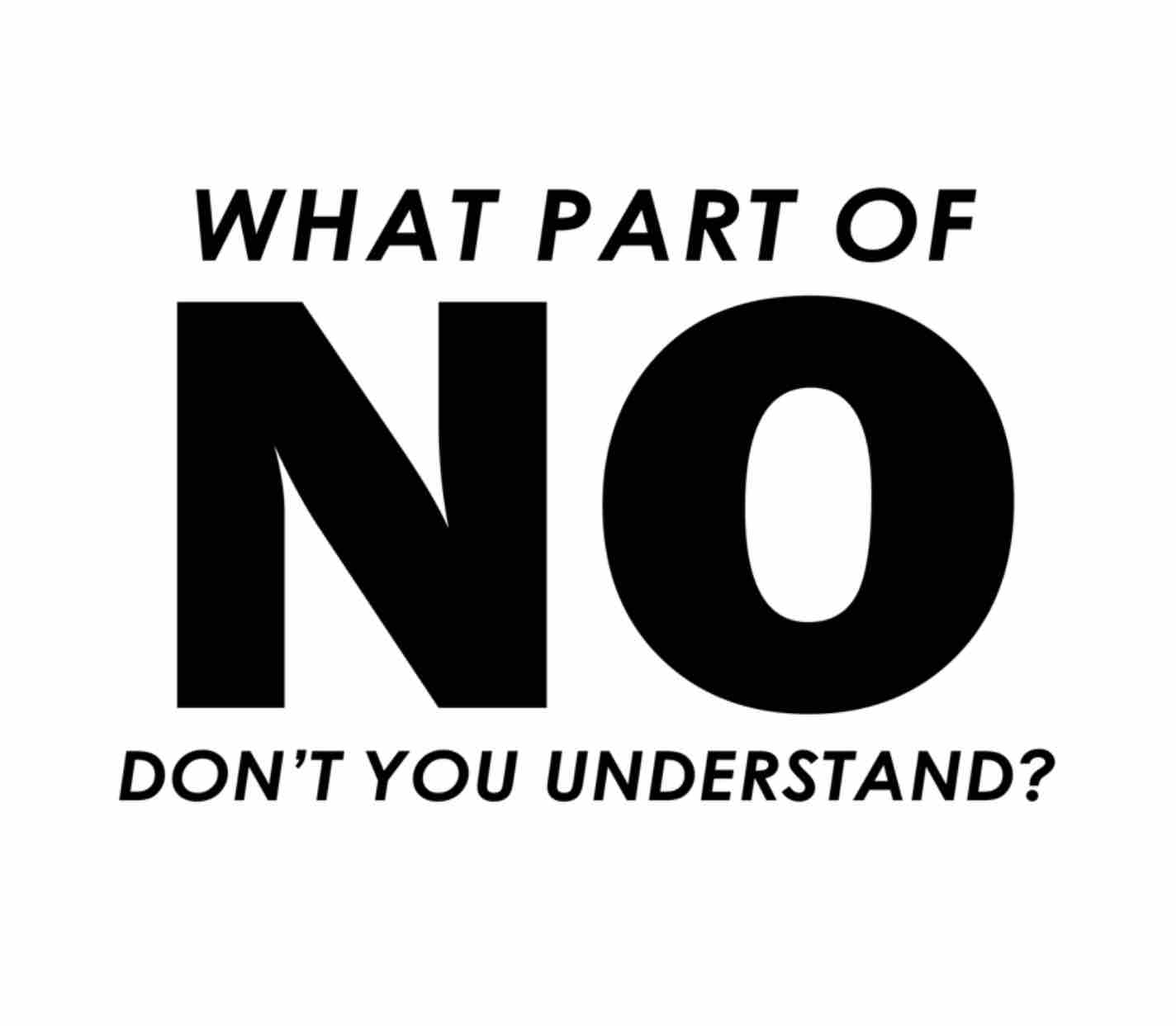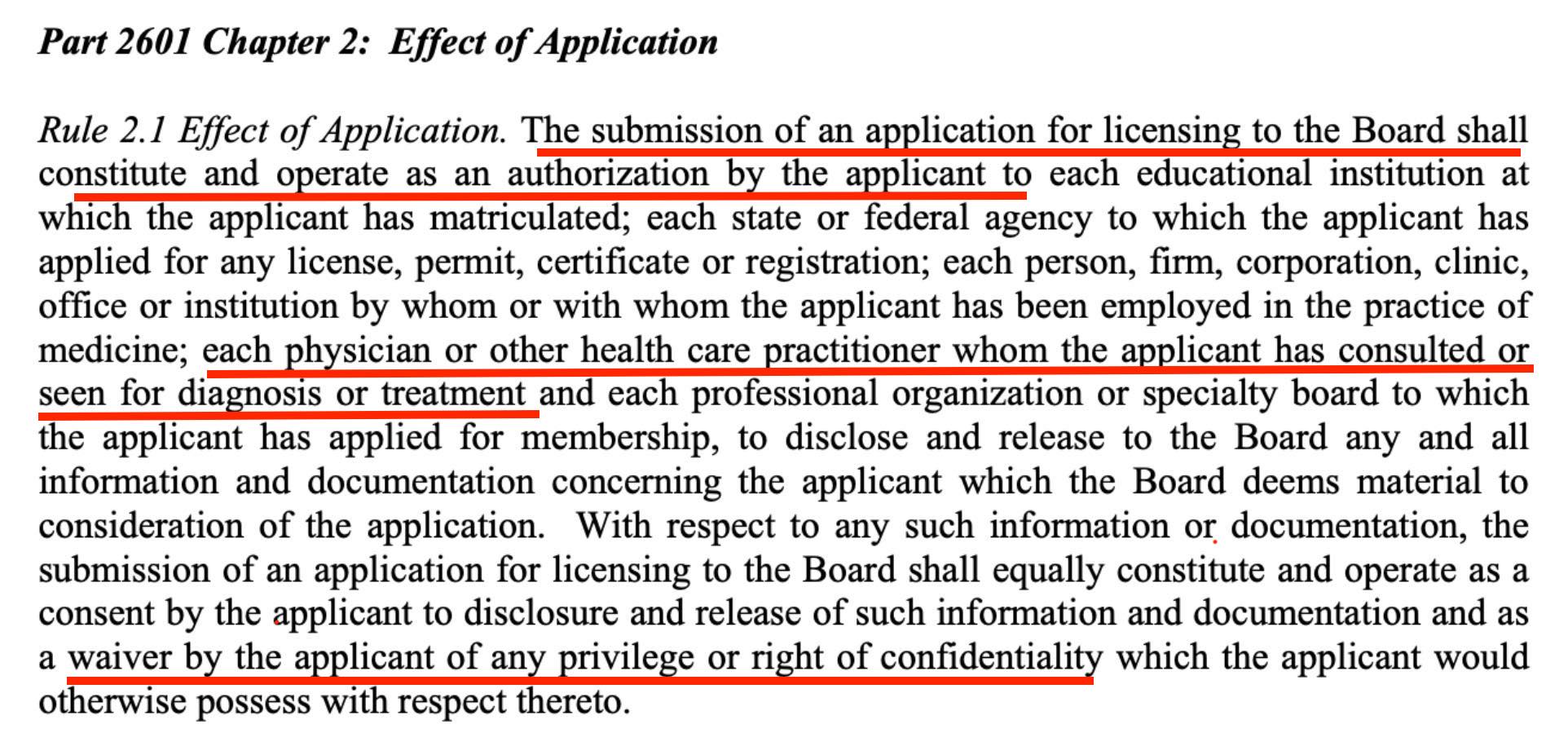
Should I answer mental health questions from my school or employer?
I’m a 23-year-old incoming premed student. I’m supposed to fill out my school’s health history intake. One of the questions asks, “Have you ever experienced: 1. Self-injurious behavior (ex: cutting, burning, etc), 2. Suicide attempt 3. Psychosis 4. Sexual assault.” I was sexually assaulted in high school. Do I really have to report this to my school? I am afraid this will follow me forever and end up in my official medical school file. I am a joyous person now with no mental health problems. What should I do?
If I answer yes to any questions, could my medical career be adversely impacted?
Yes.
In 2023, applications for hospital privileges, state board licensure, medical liability coverage, and health plan participation continue to ask physicians invasive mental health questions. Fortunately, DOJ is now investigating the legality of these questions.
If you answer YES to any mental health question, your application is flagged, and you may invite a cascade of adverse actions with retrieval of remote psychiatric history. How remote? I’m aware of trainees entrapped in monitoring programs for isolated use of marijuana in high school.
What kind of monitoring program could I be forced to enter?
Medical trainees and physicians may be referred to a physician health program (PHP)—with a costly 5-year consent order, random urine/blood/hair drug tests, and 12-step meetings (see video)—even with no history of alcohol or drug use! Your alleged diagnoses may be publicly disclosed (even on a state board’s Facebook page!) and be entered into the National Practitioner Data Bank.
Even if you do not experience immediate career repercussions, your history of sexual assault and depression may be weaponized in the future to label you as mentally ill and a danger to patient care, especially if you are singled out as ‘difficult’ by faculty or hospital admin. An angry patient (or ex-spouse) can submit anonymous board complaints leading to mandatory PHP enrollment as a requirement of licensure.
How can state boards acquire my confidential information?
The act of submitting an application for medical license waives your confidentiality and HIPAA rights to any documents held by a state or federal agency, educational or training institution, employer, clinic, hospital, or health professional. Most boards hide confidentiality release clauses in state statutes or fine-print application documents.
An example from Mississippi:

Mississippi Medical Board Application
Don’t I have any legal protection?
You have ADA protection. With a record of depression (of any duration), you have a legal disability. Your university receives federal funds and has lawful obligations under Section 504 of Rehab Act regarding disability. Department of Education handles ADA complaints within educational institutions. Association of American Medical Colleges (AAMC) endorses compliance with ADA.
Call your state Disability Rights Advocacy group for free legal advice to help you determine if you are required to answer these questions or contact Lisa Meeks, Ph.D., who specializes in medical students with disabilities.
Avoid care through your educational institution. Under the Family Educational Rights and Privacy Act (FERPA), HIPAA’s privacy rule does not apply to “education records” or “treatment records.” Trainees have been sent to school psychiatrists who breach their “perceived” confidentiality by sharing medical charts with deans and program directors. FERPA health records are HIPAA-exempt and courts have ruled students have no private right of action for a FERPA violation.
How should I respond to invasive mental health questions in the future?
1) Scrutinize the wording of each question, and when possible—answer NO. If you feel pressured to disclose your “protected” health information (PHI), refuse to answer based on “need to know.”
2) Document your concerns regarding the purpose of questions, privacy laws, and how your information may be used, shared, or harm you now or in the future.
3) Discuss your rights with a team of expert physicians. We meet every Sunday. For your confidential Zoom link, contact Dr. Wible.
What can I do now to ensure my future mental health care is confidential?
Here are 13 tips to keep yourself safe when seeking help: How to get confidential mental health help for physicians and medical trainees.














This is just sad. Those who are supposed to care for health can’t even be honest about their mental health. That is how you know this place has really gone wrong. One thing I’ve learnt is if you want to be in health, be ready to lose yours. Please only do this for your wishes (and NOBODY else’s).